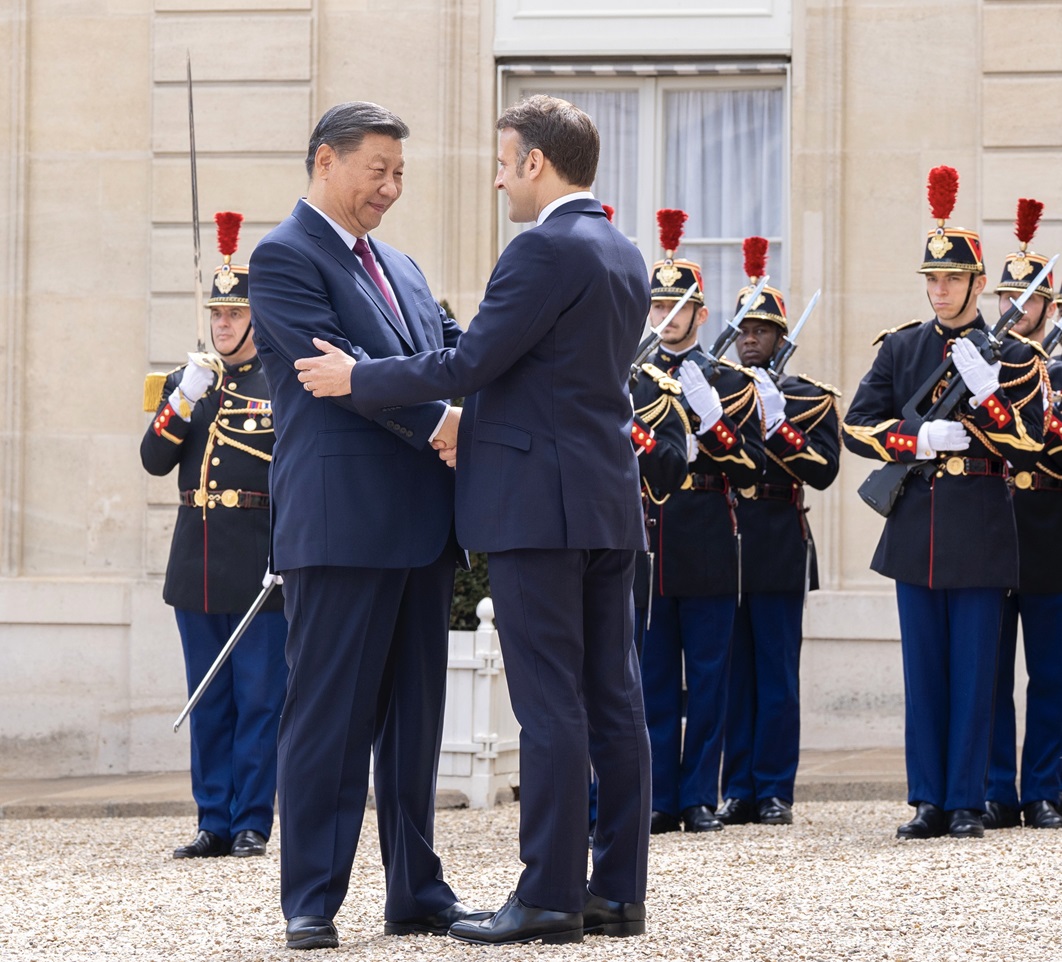Xi and Macron agree on Gaza, but from Belgrade Xi looks to the South China Sea
At the end of the summit in the Pyrenees, France and China issued a joint statement against any Israeli operation in Rafah, calling for “an immediate and sustainable ceasefire” and a “political settlement of the Palestinian-Israeli conflict based on the two-State solution.” Twenty-five years after NATO bombs hit its embassy in Belgrade, China warned: “we will never allow such tragic history to repeat itself”.
Paris (AsiaNews/Agencies) – Chinese President Xi Jinping is in France on a state visit. Prompted by the latest reports from the Middle East, he and his French counterpart have taken the same position on events in the region, the most significant result of the visit so far.
“As permanent members of the United Nations Security Council, China and France” are opposed to “an Israeli offensive on Rafah, which would lead to a humanitarian disaster on a larger scale, as well as to forced displacement of Palestinian civilians.”
From the Pyrenees, which French President Emmanuel Macron chose for the second and final day of meetings, the two heads of state issued a nine-point statement a day after Israel launched a ground operation in Rafah, limited so far, despite Hamas’s overtures to an agreement mediated by Qatar and Egypt, albeit based on conditions partly different from those accepted by the Israeli government.
In the press release, Macron and Xi say that, “an immediate and sustainable ceasefire is urgently needed to enable the delivery of large-scale humanitarian aid and the protection of civilians in the Gaza Strip.”
They go on to call for “the immediate and unconditional release of all hostages and the guarantee of humanitarian access to meet their medical and other humanitarian needs, as well as respect for international law with regard to all detainees.”
Both condemn “Israel's policy of settlement construction, which violates international law and constitutes a major obstacle to lasting peace as well as to the possibility of establishing a viable and contiguous State of Palestine.”
Likewise, they stress “that the future governance of Gaza cannot be dissociated from a comprehensive political settlement of the Palestinian-Israeli conflict based on the two-State solution”.
This can only be based on the implementation of “the two-State solution, with Israel and Palestine living side by side in peace and security, both with Jerusalem as their capital, and the establishment of a viable, independent and sovereign State of Palestine based on the 1967 borders.”
China and France are equally committed to “a political and diplomatic solution to the Iranian nuclear issue”, stressing “the importance of safeguarding freedom of navigation in the Red Sea and the Gulf of Aden”; for this reason, they call “for an immediate cessation of attacks on civilian vessels to safeguard maritime security and global trade and prevent regional tensions and humanitarian and environmental risks.”
Finally, China joins France to call for an Olympic Truce during the 2024 Summer Olympic and Paralympic Games in Paris. This will provide “an opportunity to work toward a durable resolution of conflicts in full respect of international law.”
Xi’s trip to Europe gives him a chance to reiterate China’s role in global politics, rattling the cage of the Western alliance system.
Significantly, the European tour by the Chinese leader includes a stop in Belgrade. Today marks 25 years since NATO bombs hit China’s embassy in the Serbian capital, which the Atlantic Alliance then called a tragic mistake that cost the lives of three Chinese journalists.
China’s president chose this stop in his European trip, at a time when the United States is mobilising, including militarily, to contain China’s expansionism in Asia, as evinced by the Taiwan issue and the clash with the Philippines in the South China Sea.
Xi wants to use the anniversary of the attack in Belgrade for domestic consumption, pushing the image of a China that will never be weak in the face of aggression.
In a letter published in the Serbian newspaper Politika, on the eve of his arrival, he urged his countrymen and women not to forget what NATO did in 1999. "The Chinese people,” he writes, “cherish peace, but we will never allow such tragic history to repeat itself.”
20/02/2021 13:24







.png)










